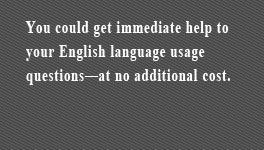What Mandela Taught Us
The Financial Times December 10, 2013

'Arguably a saint, he was definitely a politician who understood power'


In 1993, South African general Constand Viljoen was plotting an Afrikaner guerrilla war against multiracial rule.
So Nelson Mandela invited him over for tea. When Viljoen and three other retired generals arrived at Mandela's house in Johannesburg, they expected a maid to open the door. Instead a smiling Mandela greeted them, shaking their hands and expressing his delight at seeing them. Then he invited Viljoen to his lounge for a private chat.
"He asked me if I took tea," Viljoen later told John Carlin, author of the new book Knowing Mandela (and a contributor to the FT). "I said yes and he poured me a cup. He asked me if I took milk. I said yes and he poured me milk. Then he asked me if I took sugar with my tea. I said I did and he poured the sugar. All I had to do was stir it!"
Speaking in Viljoen's language, Afrikaans, Mandela persuaded him that a guerrilla war would lead nowhere. Instead, he urged him to stand for parliament in the multiracial elections. Viljoen left the house purged of warlike thoughts. "Mandela wins over all who meet him," he told Carlin.
As Carlin wrote in his previous study of Mandela, Playing the Enemy , any book about him ends up turning into a self-help book. Mandela knew how to make friends and influence people. Arguably a saint, he was definitely a politician who understood power. Here, drawn largely from Carlin's work, are lessons from Mandela for politicians and everybody else:
Treat your enemies with respect and empathy
Mandela's comrade Walter Sisulu once told Carlin that what Mandela fought for all his life was "ordinary respect". Respect was what apartheid denied black people. Mandela won respect by giving it to others.
He treated everyone with respect - always standing up, for instance, when a tea-lady entered the room. But the quality helped most with enemies. He spent years in jail studying Afrikaans and Afrikaners, most of whom considered him a terrorist. He used his knowledge to win them over.
When Carlin last visited Mandela, in 2009, the 91-year-old was sitting blankly at a table, struggling to feed himself. Only once during the encounter did he jolt alert and speak: "My people said I was afraid. They said I was a coward because I reached out to the Afrikaner . . . They have seen the results. We have peace."
What Mandela understood is that the human factor matters. Big decisions - in politics and beyond - are made by people. Enemies are people who don't respect you and think you don't respect them. If you can demonstrate respect and empathy, they will trust you to treat them right.
The talks that ended apartheid have parallels with today's talks on Iran. Mandela would have loved to sit down with Iran's president Hassan Rouhani or Israel's prime minister Benjamin Netanyahu, intuiting their hopes and anxieties and soothing them. By contrast, Barack Obama obviously dislikes Netanyahu. That's a luxury Mandela never allowed himself. Dislike is an easy way out of engagement.
Accept that you can never start with a blank slate
Mandela understood that the Afrikaners weren't going anywhere. A South Africa without them wasn't on offer. So he worked with what he had. On Robben Island, he always told fellow prisoners that the new South Africa must include Afrikaners.
When leaders succumb to the fantasy of a blank slate, things go wrong. George W Bush imagined he could achieve an Afghanistan without the Taliban, and an Iraq that excluded former Ba'athists. Bush's father always made time to brief Mandela. Had his son done likewise in 2001, he might have saved himself lots of trouble.
Only have one or two political goals
Mandela had a mission: replace apartheid with one person, one vote.
That principle was non-negotiable, yet on most other matters he was flexible, even opportunistic. After leaving jail in 1990, he planned to nationalise South Africa's main industries. But in 1992 he flew to the World Economic Forum in Davos, where delegates from several countries told him this was nuts. Back home, he called in officials from the African National Congress and said, "Chaps, we've got to change."
Successful politicians are unbending only on very few issues. Every position on lesser matters is just a bargaining chip. Ronald Reagan, for instance, wanted to cut taxes. Flexible in his tactics, he got there.
Don't punish people - even when they deserve it
Mandela "made pacts with plenty of devils", writes Carlin. Even as president, he never punished those devils. As he told white audiences: "Forget the past." Often people punish others to affirm their own moral superiority. Mandela affirmed his superiority precisely by forgiving. It happened to be the only way to make a new South Africa. Egyptians, Libyans and Syrians should take note.
Don't imagine that you are irreplaceable
Mandela retired after one term as South African president. His successors have disappointed. But only by coming and then going could he create an improbable democracy.
 +7 (495) 969-87-46
+7 (495) 969-87-46





















